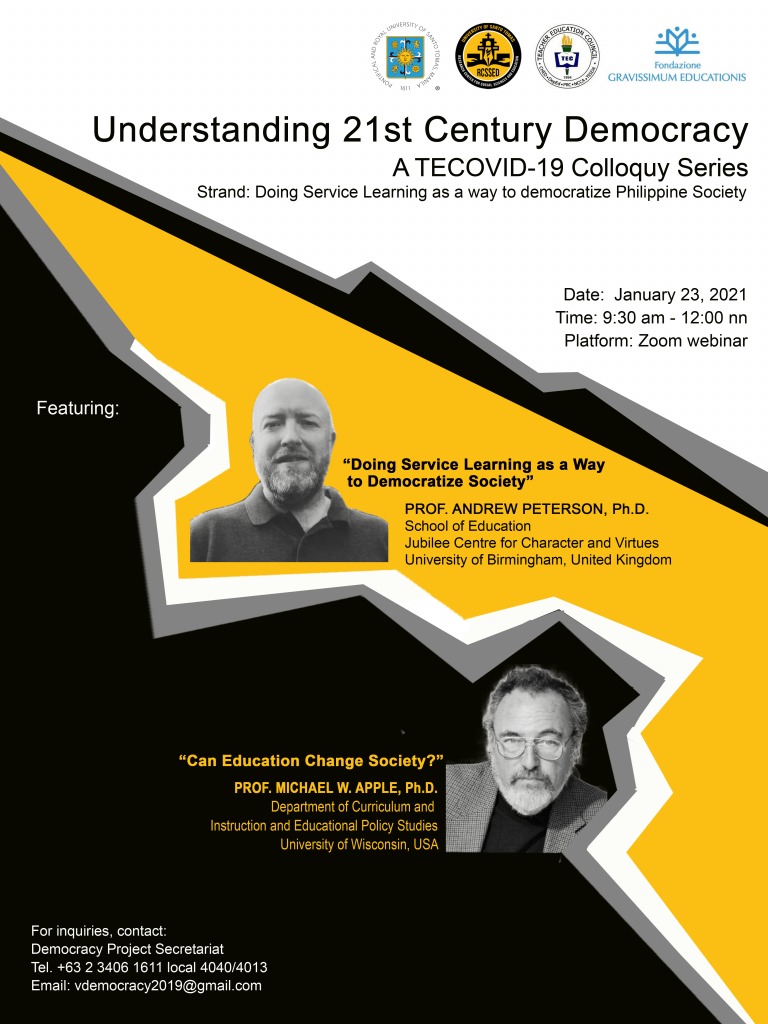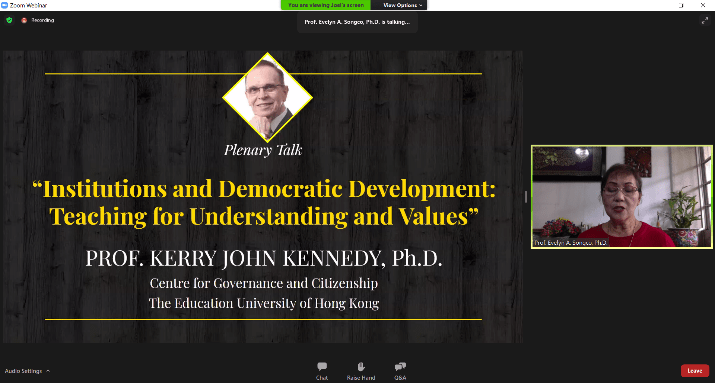The University of Santo Tomas Research Center for Social Sciences and Education (RCSSED) and the Fondazionne Gravissimum Educationis, in cooperation with the Teacher Education Council (TEC) of the Department of Education opened avenues on social advocacy through a series of webinars linking local and international experts and stakeholders.
With the theme, “Understanding 21st Century Democracy,” this series had three strands of webinars. The first, on Understanding Democracy as a Human Enterprise. Second was Embracing Democracy as Educational Commitment. And finally, the third was on Doing Service Learning as a Way to Democratize Philippine Society.
Each of the strands linked the practice of democracy to 21st century education. In strand 1, international guest speakers Prof. Tina Nabatchi, Ph.D. and Assoc. Prof. Edson C. Tandoc, Jr., Ph.D. discussed “Citizenship Skills for Democracy” and “Democracy and Communication” respectively for day 1. For day 2, the speakers were Assoc. Prof. Barbara Wejnert, Ph.D. on “Democracy during Disasters,” and Prof. Sorpong Peou, Ph.D. on “Democracy and Human Rights.”
For strand 2, day 1 saw the international lectures by Prof. Gert Biesta, Ph.D. on “Embracing Democracy as Educational Commitment” and Assoc. Prof. David Zyngier, Ph.D. on “Educators for Democracy: Different ‘kinds’ of citizenship.” Days 2 and 3 were graced by Prof. Kerry John Kennedy, Ph.D. who spoke on “Institutions and Democratic Development: Teaching for Understanding and Values,” and by Assoc. Prof. Theresa Alviar-Martin, Ph.D. for “Democracy and the School Curriculum”
The third strand was discussed by Prof. Mark Anthony Abenir, DSD, who talked about “The Use of an Integrated Service-Learning Sociological Framework towards Building a Democratic Society” on day 1. The series ended with Mr. Andrew Peterson, Ph.D. and Prof. Michael W. Apple, Ph.D., who each discussed on the respective topics on “Doing Service Learning as a way to democratize Philippine Society” and “Can education change society?” With master teachers in social studies, regional education supervisors, and democracy local antenna units from both the Philippines and various countries, this webinar engaged attendees towards socio-political participation as part of the advocacies of the research center






